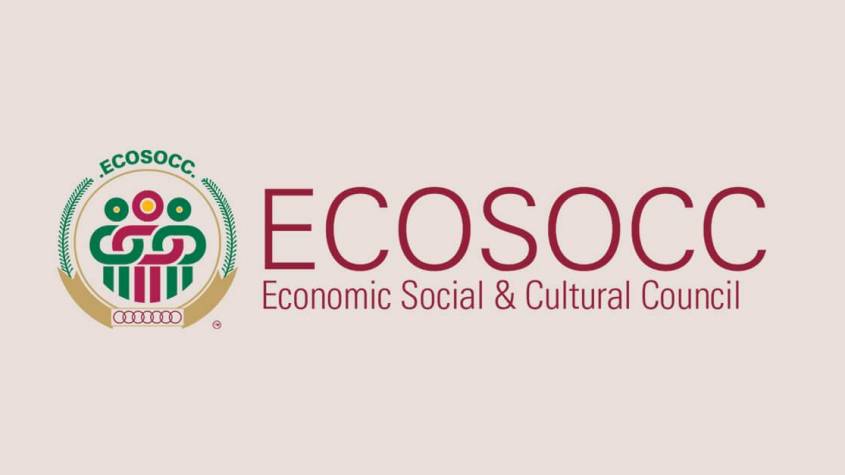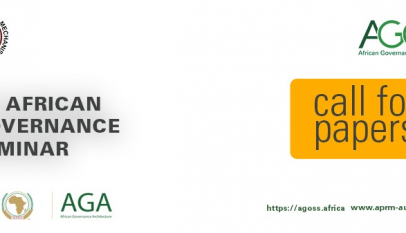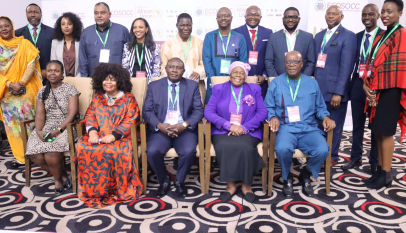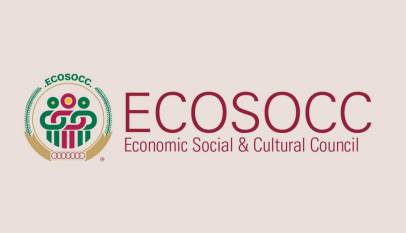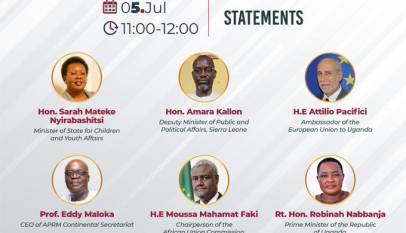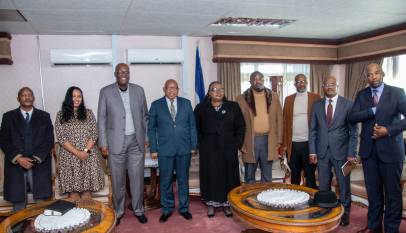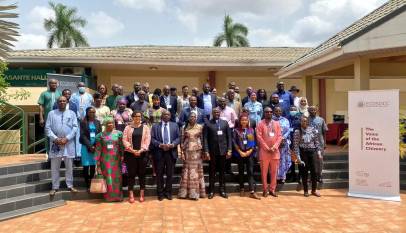AU@20: ECOSOCC unveils activities for Pan African Month
Ahead of the 41st Ordinary Session of the African Union Executive Council and the 4th AU – Regional Economic Communities (RECs) Mid-Year Coordination Meeting (MYCM), to be held July 17 in Lusaka, Zambia, which coincides with the 20th anniversary of the AU, the Economic, Social and Cultural Council (ECOSOCC) has unveiled a series of activities to commemorate the landmark commemorative event.
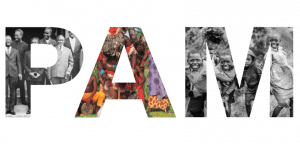
By Stephen Enoch
The MYCM, which replaces the AU’s mid-year summits, seeks to create alignment and coordination between the work of the Union and its 8 recognized RECs. The MYCM is a meeting between the bureau of the AU Assembly and RECs, which enjoys the participation of the chairpersons of RECs, the AU Commission and Regional Mechanisms (RMs).
Notably, the month of July 2022 i.e the Pan African Month (PAM) marks 20 years since the Durban Summit which established the AU, and nearly 60 years since the Organisation of African Unity was founded (OAU) in 1963. Accordingly, ECOSOCC is hosting a series of activities throughout July to recognize the contributions of African Civil Society Organizations (CSOs) to the continent’s integration agenda.
William Carew, Head of ECOSOCC Secretariat, in his welcome remarks at the launch of the month-long PAM activities on Friday said the commemoration was the right moment to ascertain the progress made by African people from the days of the founding of the OAU, emphasizing ECOSOCC’s key mandate of promoting dialogue between all segments of the African society on issues concerning the continent and its future.
“The official launch of this Pan-African Month is a moment to reflect and assess the progress our continent has made in achieving the goals outlined in the AU Constitutive Act, as well as a moment to seek workable solutions to the challenges the continent faces. It is also our hope that the African civil society will not shy away from taking an active role in the list of activities that have been planned for this PAM,” Carew said.
Amb Amr Aljowaily, strategic adviser to the deputy chairperson of the AU Commission, who formally launched ECOSOCC’s PAM activities, said Africa was now at a decisive moment to move towards the realization of the AU’s Agenda 2063 emphasizing the need for collaborative efforts between private sector, government, and civil society to actualize ‘The Africa We Want’ since none of the sectors could independently undertake the ambitious mission of transforming the continent.
Amb Aljowaily therefore called for “a genuine partnership which capitalizes on the respective roles of all social and institutional actors, one which is based on complementarity and not competition, on joining hands together and not pulling the ropes apart. Each actor has a role to play, a contribution to make and a constituency to respond to. At the AU, we recognized those concentric cycles long ago and we designed the structures that could help achieve this potential.”
The AU diplomat described ECOSOCC as an “exceptional and unique” platform that could help to realize this potential, noting that the rich diversity of CSOs in the calendar of activities for the Council’s PAM “provides the opportunity of harnessing the knowledge Africa needs, especially in the age where knowledge is one of the most valued resources. We look forward to learning the outcome of your rich discussions containing practical ideas founded on solid research and vetted through participatory discussions.”
Among other activities lined up for the PAM commemoration, ECOSOCC would (July 12) feature a Forum on the nexus between inequality, food and nutrition security, in collaboration with Oxfam, among other partners. The Forum will take stock of what African governments are doing to fight inequality, raise awareness about the levels of inequality and come up with “realistic and timebound” actions necessary to combat the continent’s inequality.
While speaking at the PAM launch, Peter Kamalingin, Oxfam Pan African program director, stated Oxfam’s renewed commitment to the ideals of Pan Africanism as contained in its recent global strategic framework which seeks to end the prevailing global economic system it describes as “ exclusive, extractive, colonial and racist” pointing out the need to always have the right analysis of challenges facing the continent so as to shape the right narrative and propose right solutions to the continent’s endemic problems.
“We need to decolonize the way we describe problems and the way we propose solutions as we cannot import development and this is why one of our most critical areas of interest is to increase research knowledge. Most importantly, we need to invest in people and build their agencies which will allow them to organize and this is why the civil society is important, because they are the means through which citizens can relate constructively with their governments,” Mr Kamalingin stated.
Another activity being organized as part of the ECOSOCC PAM celebrations is a dialogue forum on ‘Leveraging Africa’s extractive sector for nutrition and food security financing’ to be hosted on July 13, in collaboration with the Tax Justice Network Africa (TJNA), among others. The 1-day Forum will focus on the role of the extractive sector in tackling Africa’s domestic resource mobilization challenges.
Ms Mukupa Nsenduluka, a policy officer at TJNA who spoke at the launch of the ECOSOCC PAM activities said the Forum was inspired by the 2022 AU Theme on Food Security and Nutrition, noting that the dialogue would seek to address Agenda 2063’s goals 3 and 20, the successful realization of which requires adequate financing and domestic resource mobilization mechanisms necessary to finance nutrition and food security.
“Having realized that Agenda 2063’s aspirations and goals cannot be achieved without adequate financing, we have identified the extractive sector, which includes mining as well as the oil and gas sector in Africa, as the key sectors that can finance these [food and nutrition security] aspects of Agenda 2063 through optimal tax revenue collection and value addition,” said Ms Nsenduluka.
Another activity lined up for ECOSOCC’s commemoration of the 20th anniversary of the AU is a 3-day Citizens’ Forum on Democracy and Unconstitutional Changes of Government in Africa (July 11 -13), in collaboration with the African Peer Review Mechanism (APRM). Other ECOSOCC activities put together for July are a 1-day Highlevel Dialogue on Gender Inequality and Food Systems in Africa (July 13), as well as an E-symposium on the 2022 AU Theme of the Year (July 29), among others.

